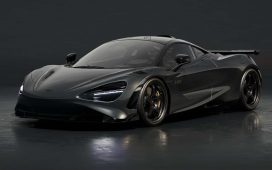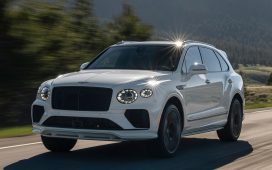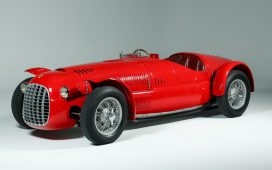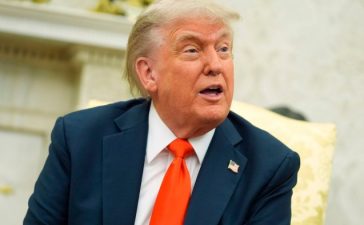EU leaders have given the green light to extra tariffs on electric vehicles from China despite opposition from five countries including Germany, where car manufacturers condemned the decision as a potential “fatal” blow for the auto industry.
The European Commission – which provisionally approved the step in June after an inquiry found that Beijing’s state aid to auto manufacturers was unfair – now has free rein to impose steep tariffs for five years from the end of this month.
The tariffs of up to 35.3%, coming on top of existing duties of 10%, were supported by 10 member states including France, Italy and Poland, several European diplomats told the AFP news agency.
Only five nations including Germany and Hungary, which has significant investment promises from China, voted against, while 12 abstained including Spain and Sweden.
BMW and Volkswagen criticised the EU decision. BMW said it was a “fatal signal” for the European car industry, while VW said it was the “wrong approach”.
Germany’s auto industry association, the VDA, also waded in, saying the country’s vote against tariffs was the “right signal” for the industry. The carmakers’ opposition led to some criticism that instead of falling behind EU policy, they were siding with China, which condemned the vote as “protectionist”.
“We strongly encourage the EU to … delay the implementation of these tariffs, and prioritise resolving disputes and trade tensions through consultations and dialogue,” the China Chamber of Commerce to the EU said in a statement.
Although the tariffs did not win support from a majority of states, the opposition was not enough to block them – which would have required the objection at least 15 nations representing 65% of the bloc’s population.
That leaves the choice on moving ahead in the hands of the commission, which “can be expected to decide in line with its proposal,” an EU diplomat said. The extra duties also apply, at various rates, to vehicles made in China by foreign groups such as Tesla, which faces a tariff of 7.8%.
Brussels says the measures aim to protect European carmakers in a critical industry that provides jobs to about 14 million people across the EU but does not benefit from hefty state subsidies like in China.
Canada and the US have in recent months imposed much higher tariffs of 100% on Chinese electric car imports.
The EU duties have pitted France and Germany against each other, with Paris arguing they are necessary to level the playing field for EU carmakers against Chinese counterparts. The levies due to come into force from the start of November and hold for at least five years, range from 7.8% extra duties on Tesla cars manufactured in China to 35.3% for cars made by the conglomerate SAIC including the British brand MG.
after newsletter promotion
In an indication of fears spreading in Europe over the move, the Spanish prime minister, Pedro Sánchez, reversed course and asked Brussels last month to “reconsider”, despite Madrid’s initial support. Spain is among several European countries where China has invested significant sums in auto manufacturing.
The prospect of a trade war with China comes amid fears that UK manufacturers of EVs are struggling to meet sales targets.
The UK bosses of BMW, Ford and the Land Rover maker JLR were among those who wrote to the British Treasury on Friday ramping up pressure for government subsidies for EV sales amid a race to comply with the UK’s zero-emission vehicle (ZEV) mandate. The initiative is aimed at managing the phase-out of new petrol and diesel car sales, and the switch to EVs, over the next six years.
The latest data in the UK shows diesel sales continued to grow at a much higher rate than EVs.
The figures show registrations of new diesel cars for private buyers in September grew by about 17.2% compared with the same month in 2023. That compares with a rise of approximately 3.7% for pure battery electrics.











